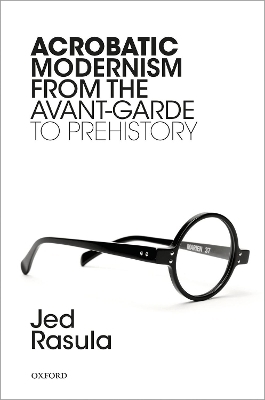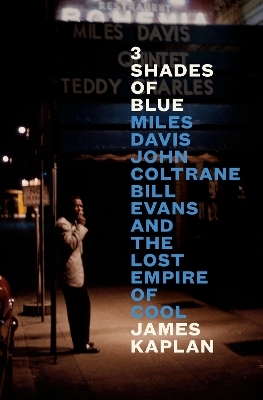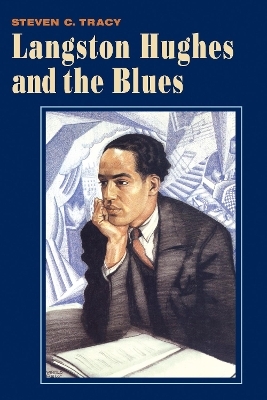
Acrobatic Modernism from the Avant-Garde to Prehistory
Seiten
2020
Oxford University Press (Verlag)
978-0-19-883394-9 (ISBN)
Oxford University Press (Verlag)
978-0-19-883394-9 (ISBN)
Moving through a vast geographical, cultural, and artistic terrain and juxtaposing numerous modernist works, this volume explores the multiplicity of modernism and provides in-depth case studies, including of James Joyce's Finnegans Wake, the reception of jazz music in Europe, and the Cubist movement in the visual arts.
This is a book about artistic modernism contending with the historical transfigurations of modernity. As a conscientious engagement with modernity's restructuring of the lifeworld, the modernist avant-garde raised the stakes of this engagement to programmatic explicitness. But even beyond the vanguard, the global phenomenon of jazz combined somatic assault with sensory tutelage. Jazz, like the new technologies of modernity, re-calibrated sensory ratios. The criterion of the new as self-making also extended to names: pseudonyms and heteronyms. The protocols of modernism solicited a pragmatic arousal of bodily sensation as artistic resource, validating an acrobatic sensibility ranging from slapstick and laughter to the pathos of bereavement. Expressivity trumped representation. The artwork was a diagram of perception, not a mimetic rendering. For artists, the historical pressures of altered perception provoked new models, and Ezra Pound's slogan 'Make It New' became the generic rallying cry of renovation.
The paradigmatic stance of the avant-garde was established by Futurism, but the discovery of prehistoric art added another provocation to artists. Paleolithic caves validated the spirit of all-over composition, unframed and dynamic. Geometric abstraction, Constructivism and Purism, and Surrealism were all in quest of a new mythology. Making it new yielded a new pathos in the sensation of radical discrepancy between futurist striving and remotest antiquity. The Paleolithic cave and the USSR emitted comparable siren calls on behalf of the remote past and the desired future. As such, the present was suffused with the pathos of being neither, but subject to both.
This is a book about artistic modernism contending with the historical transfigurations of modernity. As a conscientious engagement with modernity's restructuring of the lifeworld, the modernist avant-garde raised the stakes of this engagement to programmatic explicitness. But even beyond the vanguard, the global phenomenon of jazz combined somatic assault with sensory tutelage. Jazz, like the new technologies of modernity, re-calibrated sensory ratios. The criterion of the new as self-making also extended to names: pseudonyms and heteronyms. The protocols of modernism solicited a pragmatic arousal of bodily sensation as artistic resource, validating an acrobatic sensibility ranging from slapstick and laughter to the pathos of bereavement. Expressivity trumped representation. The artwork was a diagram of perception, not a mimetic rendering. For artists, the historical pressures of altered perception provoked new models, and Ezra Pound's slogan 'Make It New' became the generic rallying cry of renovation.
The paradigmatic stance of the avant-garde was established by Futurism, but the discovery of prehistoric art added another provocation to artists. Paleolithic caves validated the spirit of all-over composition, unframed and dynamic. Geometric abstraction, Constructivism and Purism, and Surrealism were all in quest of a new mythology. Making it new yielded a new pathos in the sensation of radical discrepancy between futurist striving and remotest antiquity. The Paleolithic cave and the USSR emitted comparable siren calls on behalf of the remote past and the desired future. As such, the present was suffused with the pathos of being neither, but subject to both.
Jed Rasula, Helen S. Lanier Distinguished Professor at the University of Georgia Jed Rasula's scholarly work has largely been on modern art and literature, with seven books and two anthologies. He has also been involved in literary affairs, with three poetry collections, as editor of a poetry magazine, and serving on the editorial board of another. Before becoming a professor he worked in television and radio, as a graphic designer and bookseller.
Preface
Introduction: Acrobatic Modernism, A Relentless Metabolism
1: The Ache of Modernism
2: Luminous Sores: The Pathic Receptacles of Modernism
3: Gathering Hay in a Thunderstorm
4: Make It New
5: Jazzbandism
6: Multiplied Man
7: The New Mythology
8: The Renaissance of the Archaic
Afterword
| Erscheinungsdatum | 03.01.2020 |
|---|---|
| Zusatzinfo | 39 Illustrations |
| Verlagsort | Oxford |
| Sprache | englisch |
| Maße | 161 x 236 mm |
| Gewicht | 874 g |
| Themenwelt | Kunst / Musik / Theater ► Musik ► Jazz / Blues |
| Geisteswissenschaften ► Sprach- / Literaturwissenschaft ► Anglistik / Amerikanistik | |
| Geisteswissenschaften ► Sprach- / Literaturwissenschaft ► Literaturwissenschaft | |
| ISBN-10 | 0-19-883394-6 / 0198833946 |
| ISBN-13 | 978-0-19-883394-9 / 9780198833949 |
| Zustand | Neuware |
| Informationen gemäß Produktsicherheitsverordnung (GPSR) | |
| Haben Sie eine Frage zum Produkt? |
Mehr entdecken
aus dem Bereich
aus dem Bereich
zur politischen Ästhetik des Jazz
Buch | Hardcover (2023)
Phillip Reclam (Verlag)
CHF 49,90
Miles Davis, John Coltrane, Bill Evans, and the Lost Empire of Cool
Buch | Hardcover (2024)
The Penguin Press (Verlag)
CHF 39,90
Buch | Softcover (2024)
University of Illinois Press (Verlag)
CHF 41,85


